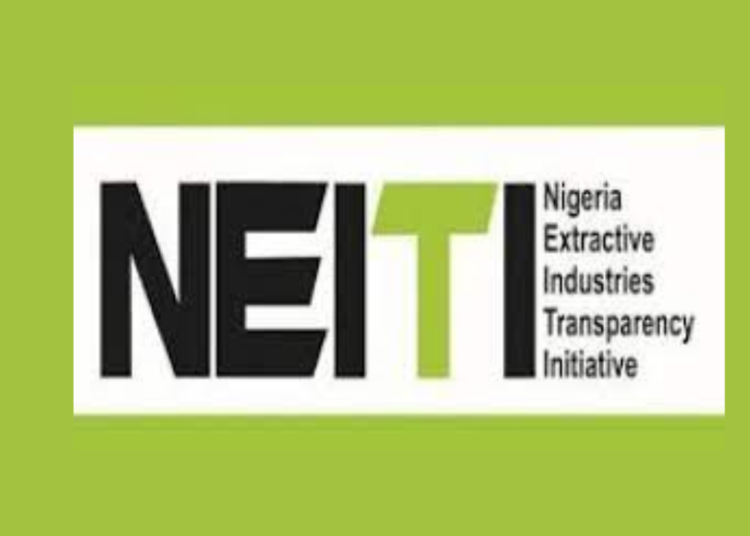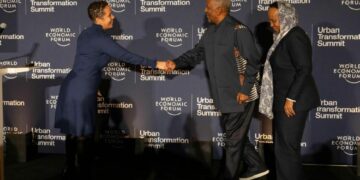The federal government has inaugurated the sixth National Stakeholders Working Group, (NSWG), of the Nigeria Extractive Industries Transparency Initiative, (NEITI), cautioning them to conduct themselves in line with their appointment requirement and not interfere in the day-to-day activities of the agency.
President Bola Ahmed Tinubu made this call in Abuja, yesterday, while inaugurating the 6th board of the agency/
Represented by the Secretary to the Government of the Federation, Sen. George Akume, who also chairs the new NEITI Board, the President stated that transparency in the extractive sector as well as prudent management of Nigeria’s resources is central to his administration’s economic agenda and the anti-corruption policies of
“The present administration is passionate and remains fully committed to the global Extractive Industries Transparency Initiative (NEITI), the work of NEITI and the visible impacts which the EITI process has achieved so far in Nigeria.” The President affirmed.
He said: “It is also necessary for me to stress that your appointment is a part-time one. Your appointment as a member of the NSWG is not a full-time job and as members, please note this very carefully to avoid getting involved in issues of day-to-day management which is the work of NEITI management under the leadership of the executive secretary. You are therefore advised to conduct yourselves in accordance with this requirement
“Our faith in the EITI process is not just because it is central to our key government agendas, but also because, over the years, NEITI has demonstrated a high degree of competence, integrity and commitment to the values that the country requires to achieve economic growth and development in the sector through availability of reliable information and data required for national planning and reforms.
“NEITI has supported phenomenal revenue growth in the sector through meticulous application of EITI principles. Our national and global focus is on energy security, efficiency and justice in energy financing, renewable and control of emissions. The work of NEITI is so important to our country and particularly this administration in helping us to define our country’s engagement strategy on the energy transition debate through consultations, constructive engagement driven by reliable information and data”, the President added.
Addressing the board in his capacity as the NSWG Chairman, Senator George Akume stated that his appointment demonstrates the federal government’s prompt and timely response to the recent global EITI assessment of Nigeria’s implementation of the Initiative which among other observations stressed the urgent need to reconstitute NEITI’s Board to avoid sanctions.
The Chairman stressed the need for the new NEITI Board to immediately take steps to address the other outstanding issues raised by the EITI validation report which the NEITI Secretariat has already prepared a detailed corrective action plan for the Board to consider.
According to Sen. Akume, “This Board has the responsibility to understand the issues and provide policy support to the Secretariat to successfully implement the plan. Nigeria scored 72 points in that global Assessment and it is my hope that Nigeria will score 100 points at the next validation due in January 2026 under this Board and my Chairmanship”
Senator Akume reiterated that, “Our duty as a Board is to provide strong policy direction for NEITI and the extractive sector for the full implementation of the EITI principles and standards to ensure transparency and accountability in the sector. We must support the ongoing independent audits of the industry, reforms in the oil and gas sector being driven by the Petroleum Industry Act 2021, the reforms in the solid minerals sector, the proposed amendments of the NEITI Act, pay attention to the debate on climate change, energy transition, beneficial ownership disclosures, domestic resource mobilisation, contracts transparency implementation and EITI standards on Open Data”.
Despite his schedule as Secretary to the Government of the Federation, Senator Akume reassures the NEITI board of his commitment to effectively lead them as Chairman. He instructed both the Executive Secretary of NEITI and his office to create a schedule that accommodates this important additional responsibility. However, Akume states that he will rely on the support, cooperation, and understanding of the board members to successfully carry out his duties as chairman.
He expressed satisfaction over the professionalism and leadership provided by the executive secretary of NEITI and his team during the absence of the Board and the period of direct supervision by his office.
Other members of the 15-man NEITI Board include the executive chairman of the Federal Inland Revenue Service (FIRS), representing the government, while the group managing director of the Nigerian National Petroleum Company (NNPC) Limited, Mele Kyari is representing the National Oil and Gas Company.
The Board also has a representative of the Oil Producers Trade Section (OPTS), Lagos Chamber of Commerce and the President of Miners Association of Nigeria representing Extractive Companies (Oil, gas and mining companies). The civil society organisations have Dr Erisa Danladi representing them while the Presidents of Nigeria Mining & Geosciences Society (NMGS) and the President National Union of Petroleum and Natural Gas Workers (NUPENG) are representing Extractive Industries Professional Unions on the Board.
There are also six zonal representatives on the Board. They are Barr. Musa Abdullahi Lawan, member representing the North-West Zone; Abubakar Mu’azua, North-East Zone and Amb. Matthew Sunday Adoli representing the North-Central Zone. Others include Olasupo Abdel-Jeleel Taiwo, member representing the South-West; Chief Israel Ikechukwu Ikwuegbu, South-East and Dr Stephen Leo Akpan, member representing South-South zone.
This is the sixth governing Board to be appointed for NEITI since Nigeria commenced the implementation of the global Initiative in 2004.
By the NEITI Act 2007, the chairman and members have four-year tenure and are on a part time basis, while the executive secretary has a five-year tenure and is on full time appointment.





